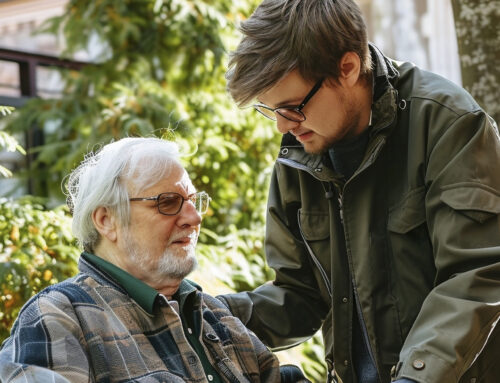Envision a breakthrough that could significantly enhance the lives of millions of people with dementia. Picture a non-pharmaceutical intervention, free of side effects and with superior efficacy, that could alleviate dementia-related challenges such as confusion and agitation, foster social interaction and cognitive engagement, and even aid in relearning meaningful skills. Now, consider the frustration of sharing this life-changing discovery with the media, hoping they would help spread the word only to be ignored. This silence is not just a lack of response but a barrier to improving the lives of those with dementia.
Most recently, I contacted the editors of the publication Next Avenue and shared my discovery with them. I truly believed they would be interested in my innovative and effective approach to care, but to my dismay, they said they were not. This rejection frustrated me because even though their mission aligns with mine, promoting the well-being of older adults, they didn’t even want to discuss how I could potentially better the lives of millions. I was perplexed, so I decided to learn more about Next Avenue. It didn’t take me long to discover what I believe is the reason for their rejection: they receive funding from the pharmaceutical giants Bristol-Myers Squibb and Pfizer, and my approach may help reduce the need for medications for millions of individuals. Now, I may be way off base with this speculation, but you have to admit, my theory makes sense. Whatever the reason, it’s a shame.
I also reached out to the author of an article that was recently published on CNN’s website. The article discussed an unfortunate incident that occurred at a memory care facility, where a resident shoved a peer, who later died as a result of the injuries he sustained when he fell. The article titled “Scared to Death: Nurses and Residents Confront Rampant Violence in Dementia Care Facilities” offers no solutions to resident-on-resident aggression and was written, in my opinion, to inspire fear, which seems to be the media’s go-to. I mean, look at the title. “Scared to Death”? Come on. Angered, I emailed the author and provided him with the information I presented to Next Avenue, an innovative approach to care that could help solve the issue he wrote about. I was hopeful that he would write a follow-up article, as it offered a possible solution to a serious problem, but sadly, he wrote back, saying he had no plans to write anything soon. This failure to act angered me much more than Next Avenue’s rejection for the following reason. What if an elderly caregiver could no longer care for their spouse because their own health was failing, and after much contemplation and heartache, they decided to place their spouse in a facility, but before doing so, read the article? What if this caregiver decided to keep their loved one at home because of the fear-inducing story? Would this caregiver, like so many others, die before their spouse because of their poor health and the immense stress the task presents? That, ladies and gentlemen, is called irresponsible journalism.
Nothing would make me happier than saying that other than those two incidents, I experienced no further adversity. Sadly, I continued to be ignored by those who could help facilitate change. I’m fairly certain that I know the reason for these organizations’ failure to act: the people I was contacting have no idea of the struggles that people with dementia face or the lack of effective treatments. But, even then, would they care? We live in a society where people do little to address issues unless the problem directly affects them. With that said, do you know who listens and is excited about my work? Those on the frontlines, families, and healthcare professionals, such as aides, nurses, therapists, etc. These individuals face daily hardships and are desperate for ways to help them better care for those they serve. I bet if those who dismissed me spent one day in these caregiver’s shoes, they’d want to hear what I have to say. Like I said earlier, silence is not just a lack of response but a barrier to improving the lives of those with dementia.
Others within my organization, The Center for Holistic Dementia Care, and I will continue our quest to reach the masses, no matter how much rejection we endure. If you are a family member, a healthcare professional, or someone who appreciates dementia’s struggles and would like to join us in our mission, please call (888) 358-2432 or email me at mattcall@cfhdc.com.
-Matt Call





